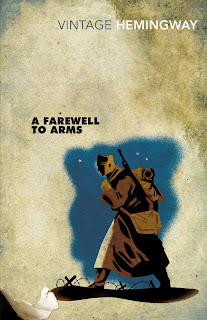 Title:
Title: The Rules of Life
Author: Richard Templar
Number of pages: 219
Started: 2 August 2009
Finished: 16 August 2009
Opening words: For reasons that are too long and complicated to go into here, I had to live with my grandparents for a couple of years when I was very young. They, like many of their generation, were hard-working, contented sort of people. My grandfather had taken early retirement owing to an industrial accident (a lorry-load of bricks fell on his foot), and my grandmother worked in a large department store in London. Having me dumped unexpectedly on her for a while obviously caused logistical problems. I was too young for school, and my grandfather wasn't to be trusted to look after me at home (men didn't look after children in those days . . . my, how things have changed). Her solution was to tuck me under her wing—on some days physically as well as metaphorically, as she smuggled me past managers and supervisors—and we went to work together.
Now going to work with "Nan" was fun. I was expected to keep quiet and still for long periods and, because I didn't know any different, assumed this was normal. I found that by watching customers—often from my safe refuge under a huge desk—I could pass the time quite happily. Thus was born an immense appetite for people watching.
You can read a list of the Rules
herePlot summary: Some people seem naturally good at it. Life that is. They seem to sail through, being successful and happy and everything always seems to fall into place. We all know a few of them - those rare people who are happy and positive and make things happen; they have a loving family, great relationships, a supportive network and work they enjoy; they generate goodwill wherever they go and always seem to know the right thing to do -- and then do it. They balance their lives without us ever seeing them frantically juggling, much less let it all drop in a mess on the floor. They are happy and successful, with diverse interests and a zest for life. How on earth do they do it? For most of us, some of the time life can be a bit of a struggle. People are difficult, things don't go our way, there's too much to deal with and we don't know how to make it all alright again. What is it that they know, that we don't? They know the Rules of Life. A simple set of principles that if followed, will hugely increase your chances of more things going your way, and that will guide you smoothly out of the tricky times when they happen. Rules of Work worked. Live the Rules of Life.
What I thought:The first rule about Fight Club is that you never talk about Fight Club, and so it goes with the Rules of Life. Rule number one is that you never tell people that you have read the book. So clearly by reviewing this I am breaking the rules already…
I like things that help you to break down complex issues into its more simple parts, and I think it is fair to say that life can be quite complex. This book is not going to change the world, and it doesn’t claim to be able to do that, but it is a useful tool to maybe make you think about how you live your life – and if you can do it a bit better.
The style of the book will either suit you or it won’t and, as there are 100 rules, you need to be able to pick out the ones that are most relevant or can make the most difference in your own life. Personally, I think there is no harm (and in fact the potential for much good) to be reminded that we should maintain good manners (rule 38), that we should change what we can change and let go of the rest (rule 16) or that we should be nice to our partners (rule 53). If you look at those and think they are pretty obvious then ask yourself if you actually do it and if you don’t then this book is a gentle reminder that encourages you to actively think about these things.
Will it change my life? No, but it might make me a bit more considerate.






